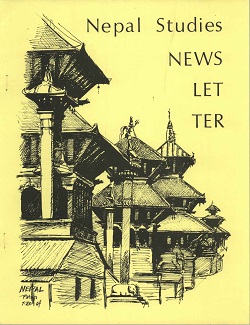Author Biography
Aidan Seale-Feldman is a Postdoctoral Research Associate and Lecturer in Bioethics at the University of Virginia. Her research explores emergent health movements and the ethics of care through a critical study of global mental health, disaster, and psychosomatic disorders in the Nepal Himalayas. She received her Ph.D. in Anthropology from the University of California–Los Angeles in 2018.
Abstract
This article traces a genealogy of mental health governance in Nepal as it was constituted in and through an assemblage of historical events, local politics, personal relationships and trends in the field of global health development. The relation between health development and local politics in Nepal is explored across four periods in the history of global health: 1) the early health development programs of disease eradication after the end of the Rana oligarchy (1951-1970); 2) the turn to primary health care during the Panchayat (1970-1990); 3) the rise of NGOs and the People’s War (1990-2010); and 4) the return to health systems development in the post-conflict/post-earthquake period (2010-present). By drawing on a combination of archival research and a cross-disciplinary review of the literature on global mental health, this article tracks the changing projects of mental health development programs in Nepal over the past century. In doing so, it becomes possible to observe the shifting trends in the problematization of mental health and the management of psychic life in Nepal from 1950 to the emergence of global mental health.
Acknowledgements
The author thanks Dannah Dennis, Erik Linstrum, and Kedar Marhatta for reading and discussing early drafts of this text and two anonymous reviewers who provided insightful comments. Special thanks to David Citrin for editorial support, Christopher Anderson and Joan Duffy at Yale Divinity School Library Special Collections, and Joel Hafvenstein, Executive Director of The United Mission to Nepal, for granting permission to reproduce the images included in this article. This research was made possible through support from the Wenner-Gren Foundation, the UCLA Center for the Study of Women, the UCLA International Institute, and the Foundation for Psychocultural Research.
Creative Commons License

This work is licensed under a Creative Commons Attribution-Noncommercial-No Derivative Works 4.0 License.
Recommended Citation
Seale-Feldman, Aidan. 2020. Historicizing the Emergence of Global Mental Health in Nepal (1950-2019). HIMALAYA 39(2).
Available at:
https://digitalcommons.macalester.edu/himalaya/vol39/iss2/7
Figure 1. The first card in a set of training cards used that were used in UMN’s Mental Health Project to aid health workers in the psychiatric diagnosis and treatment of mental disorders. Each image depicted here corresponds to an individual training card with further information (United Mission to Nepal: H-03.04.01/0027).
RG212-080-H030401-0027 0002.jpg (2515 kB)
Figure 2. Back side of the first card in the set describing the possible uses of this visual aid. (United Mission to Nepal: H-03.04.01/0027).
RG212-080-H030401-0027 0020.jpg (4548 kB)
Figure 3. Front side of a UMN training card depicting an image of a woman suffering from ghosts, spirits, and black magic and receiving treatment from a dhami-jhakri (shamanic healer) (United Mission to Nepal: H-03.04.01/0027).
RG212-080-H030401-0027 0019.jpg (1770 kB)
Figure 4. Back side of the UMN training card depicted in Figure 3 describing the overlap between behavior attributed to ghosts, spirits, and black magic, and forms of mental illness (United Mission to Nepal: H-03.04.01/0027).


